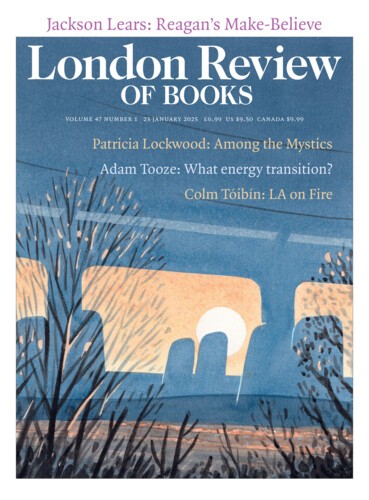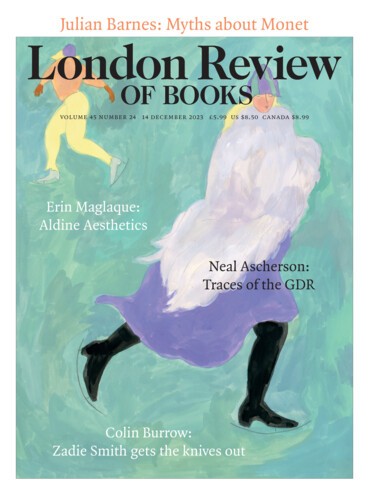The Hutu authorities in Rwanda, Scholastique Mukasonga writes in The Barefoot Woman, portrayed the Tutsi as ‘inyenzi, cockroaches, insects it was only right to persecute and eventually exterminate’. The term inyenzi evoked images of an enemy that could survive anywhere, no matter the conditions, a pervasive force which had undermined Hutu civilisation. Mukasonga’s literary project, which spans memoirs, novels and short stories, responds to this dehumanisation by reclaiming Tutsi life from the debris of Rwandan history.
Mukasonga was born into a Tutsi family in southwest Rwanda in 1956. Under Belgian colonial rule, the Tutsi aristocracy grew extremely powerful, elevated to positions of privilege within a system built on existing feudal structures supplemented by dubious ethnological theories. As Mukasonga puts it, the colonial authorities ‘claimed to know better than us who we were, where we came from’. They weighed bodies, examined skulls, and concluded that the Tutsi were of Caucasian, Semitic and Nilotic origin. A racial category was invented to account for these newly discovered origins: the Tutsi were Hamites. According to the Belgians, the Hamites’ proximity to whiteness set them apart from the Bantu people of the region, who were deemed unfit to rule. Mukasonga writes in Cockroaches (2006) that her father was ‘not an aristocrat with vast herds of cows’ (cows symbolise social status in Tutsi society), but an accountant and secretary to the sub-chief of the region. Nonetheless, the family was seen as complicit in the systematic oppression of Hutus.
Cockroaches describes the events leading up to the genocide of 1994. In Mukasonga’s telling, the outbreak of ethnic violence seems inevitable. (The penultimate chapter is called ‘1994: The Genocide, the Long-Awaited Horror’.) Her account begins in the late 1950s, when Hutu militants first begin to target Tutsi civilians. For most of her childhood, Mukasonga lived in fear of anti-Tutsi pogroms. ‘They didn’t take anything,’ she writes of one of the first attacks on her family home. ‘They only wanted to destroy, to wipe out all sign of us, annihilate us.’ She is certain they will be killed in the end. As the situation worsens, the family is forced to leave their home near ‘a large high-altitude rainforest’ in southwest Rwanda for the barren Bugesera district in the east of the country. Mukasonga describes it as ‘unpopulated savannah’. It’s no wonder, she thinks, that most Tutsi families choose to flee across the border to Burundi. She and her brother André eventually join them. ‘We’d been chosen to survive,’ she writes.
In Cockroaches, Mukasonga criticises the culture of silence that has characterised the post-genocide reconciliation process. Towards the end of the book, she recounts her final visit to Rwanda before the genocide. Her parents throw a welcome party to celebrate her return, but the presence of ‘a family of strangers’ unsettles Mukasonga. She is told that their new neighbours are ‘Hutus from the north of the country [who have] been given a place at the far end of our field’. Thirty-seven members of her family are killed in the genocide, yet when she returns a decade later, in 2004, these neighbours still occupy the same field. She confronts the father of the family, but he claims never to have heard of Mukasonga’s parents. She berates him. Eventually he admits he did know them, but quickly adds that he was away (‘in the Congo’) when the genocide happened. We are left to draw our own conclusions.
Send Letters To:
The Editor
London Review of Books,
28 Little Russell Street
London, WC1A 2HN
letters@lrb.co.uk
Please include name, address, and a telephone number.



